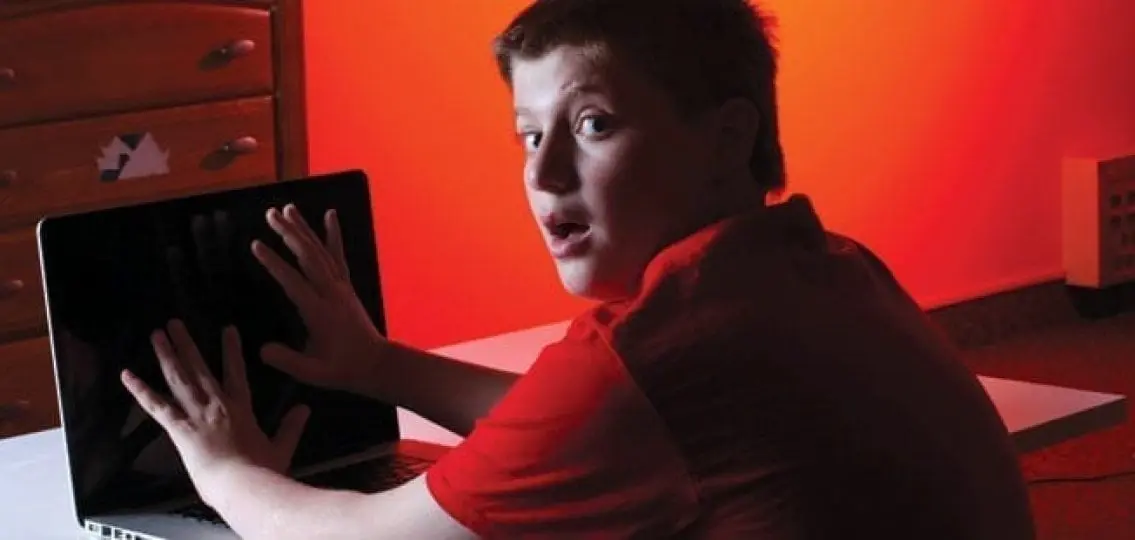Ashley K. of Santa Monica, California was an 18-year-old college student when she discovered her month-long relationship included a third party: pornography. Her new boyfriend watched porn seemingly around the clock. “He would wait to watch until I fell asleep. Then he’d wake me in the middle of the night and expect sex,” says Ashley.

Their sexual relationship got increasingly kinky. Her boyfriend expected her to react in specific ways and make certain sounds when they were intimate. At first, Ashley tried to acquiesce, to look and behave in ways that mimicked what he saw on the screen. Then, she tried to make him stop pressuring her with porn-inspired expectations. When neither approach worked, the relationship crumbled.
The reality is that a growing number of young people are learning about sex and relationships from internet porn, which frequently depicts male dominance, degrading sexual acts, and even violent acts like choking a partner during intercourse.
How can kids learn to develop healthy relationships and communicate about sex when porn is the most comprehensive sex education many kids get? It starts with the parents, says Justin Garcia, Ph.D., M.S., research director of the Kinsey Institute at Indiana University.
Porn vs Reality
Teenage interest in sexually explicit material isn’t inherently bad. “It’s developmentally appropriate for teens to be curious about sex. This is when they explore what they do and don’t like in terms of intimate acts,” says Garcia.
The problems arise when kids don’t know how to decode what they’re looking at and how, or rather if, it relates to real-life coupledom. While there probably isn’t a teenager with a heartbeat who wants to talk with their parents about sexually intimate relationships, not talking about it could have serious consequences—not only for your kid, but also for anyone they’re involved with. As uncomfortable as it is, parents need to learn how to talk about porn with their teens.
How to Talk About Porn with Teens
The key is to focus any conversation on healthy intimacy. Here’s how to begin.
1. Start now.
Conversations about sex—what it looks like, how it works, and what girls and guys really want in the bedroom—shouldn’t wait until you discover PornHub in your child’s Internet history. According to preliminary results of a 2016 Indiana University survey of 600 pairs of children and parents, parents who thought their 14- to 18-year-olds had not seen porn were right only half of the time. The take-home message: Get comfortable talking about porn and sex. Even when you think your kid hasn’t been exposed to it.
2. Keep the talk about porn real.
“Unfortunately, you’d have to look pretty hard for pornography that shows what real sex looks like,” says Emily F. Rothman, Sc.D., a professor at Boston University who researches the impact of sexually explicit media on adolescent relationships. Most porn sites don’t show people talking to each other. They don’t show consent, condoms, or ordinary bodies, or that real sex can be clumsy, silly, or awkward. And they certainly don’t show the nervous anticipation that’s the crux of most teen relationships. Your best bet: Talk to kids about sex in more detail than you probably want to. For ideas of typical teen questions and topics to discuss, check out sex education sites for teens like amaze.org, scarleteen.com, bedsider.org, and teaandintimacy.com.
3. Talk about expectations and consent.
Traditional porn caters to men. And it’s important for both boys and girls to understand that, because it can create wildly different expectations about sex. Even within genders, what people want sexually is as varied as what they like to eat or drink. Encourage teens to understand that respect and mutual exploration of preferences, rather than performance or one-sided pleasure, are the keys to healthy intimacy. “In every case, the enthusiastic consent of all parties is a prerequisite,” says Rothman.
4. Keep the door open.
Talking about sex, consent, and pornography isn’t a one-and-done discussion. “It needs to be an ongoing dialogue where your child feels comfortable sharing their experiences with you and asking questions,” Garcia says. “It’s understandable for parents to feel uncomfortable talking about sex with their kids. I’m a professional sexologist and it can be uncomfortable for me. But when you talk to your kids about sex within the context of love, relationships, and respect—as an activity that’s entirely removed from pornography—you open a doorway to healthy sexuality.”





